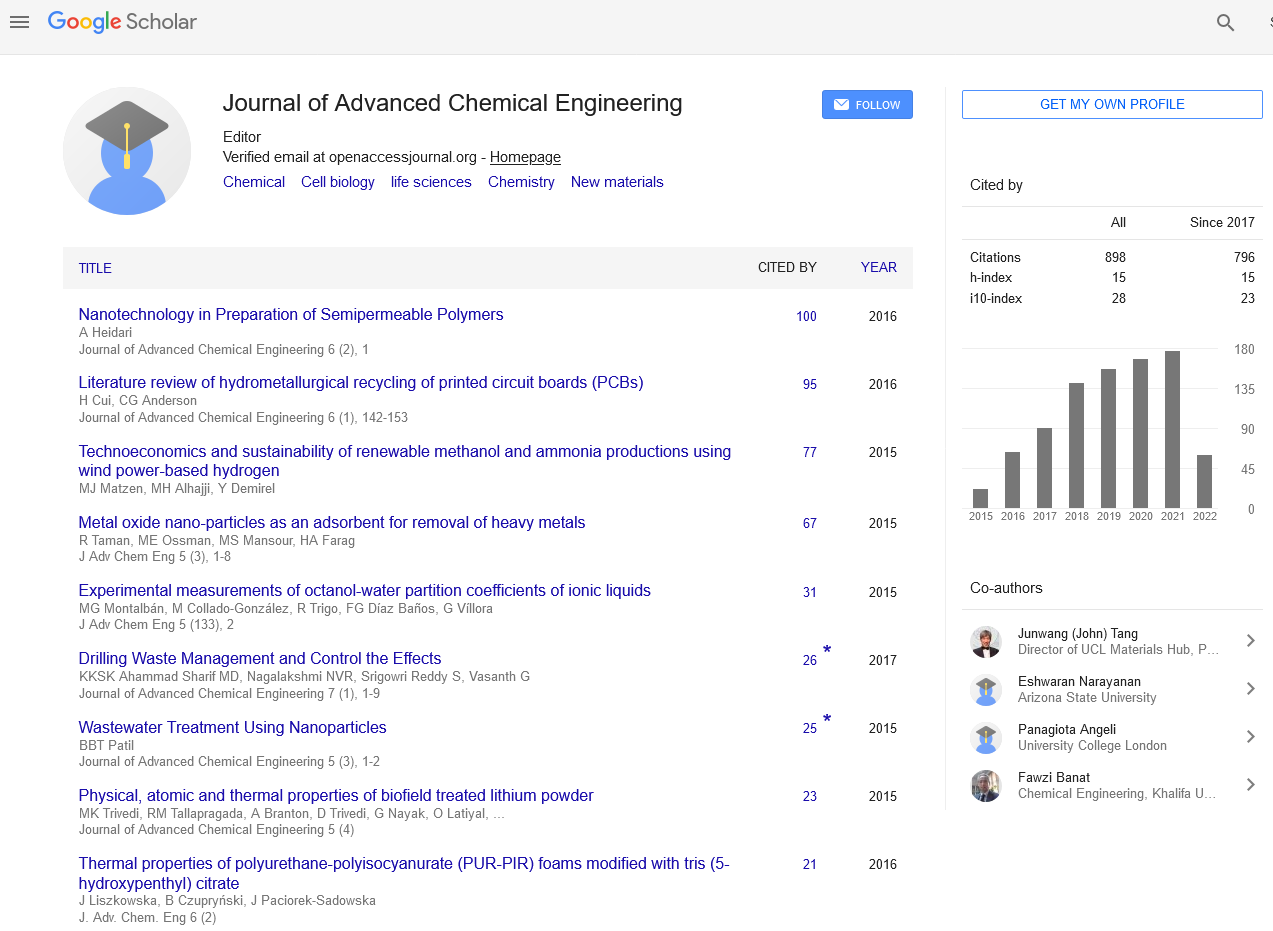Indexed In
- Open J Gate
- Genamics JournalSeek
- Smithers Rapra
- RefSeek
- Directory of Research Journal Indexing (DRJI)
- Hamdard University
- EBSCO A-Z
- OCLC- WorldCat
- Scholarsteer
- Publons
- Geneva Foundation for Medical Education and Research
- Google Scholar
Useful Links
Share This Page
Journal Flyer

Open Access Journals
- Agri and Aquaculture
- Biochemistry
- Bioinformatics & Systems Biology
- Business & Management
- Chemistry
- Clinical Sciences
- Engineering
- Food & Nutrition
- General Science
- Genetics & Molecular Biology
- Immunology & Microbiology
- Medical Sciences
- Neuroscience & Psychology
- Nursing & Health Care
- Pharmaceutical Sciences
Isolation and characterization of polyvinyl alcohol (PVA) degrading fungal strains from soil
2nd World Congress on Biopolymers
August 04-05, 2016 Manchester, UK
Somayeh Mollasalehi
University of Manchester, UK
Posters & Accepted Abstracts: J Adv Chem Eng
Abstract:
During the last thirty years, extensive research has been conducted to develop biodegradable plastics as more environmentally benign alternatives to traditional plastic polymers. Polyvinyl alcohol (PVA) is a water-soluble polymer which has recently attracted interest for the manufacture of biodegradable plastic materials. PVA is widely used as a paper coating, in adhesives and films, as a finishing agent in the textile industries and in forming oxygen impermeable films. Consequently, waste-water can contain a considerable amount of PVA and can contaminate the wider environment where the rate of biodegradation is slow. Despite its growing use, relatively little is known about its degradation and in particular the role of fungi in this process. In this study, we used culture enrichment to isolate fungal degraders from eight uncontaminated soil samples which were shown to have very different fungal populations and dominant species revealed by denaturing gradient gel electrophoresis (DGGE). While all soils contained fungal degraders, the number of recovered species were restricted with the most common being Galactomyces geotrichum and Trichosporon laibachii. One thermophilic strain, Talaromyces emersonii was recovered at 50°C. For G. geotrichum, a molecular weight range of 13- 23 KDa, 30-50 KDa or 85-124 KDa had no significant effect on the growth rate (mean doubling time 6.3 to 6.9 h-1), although there was an increased lag phase for the higher molecular weight PVA.
Biography :
Somayeh Mollasalehi has completed her PhD at the University of Manchester and is working as a Researcher at the University of Manchester.


